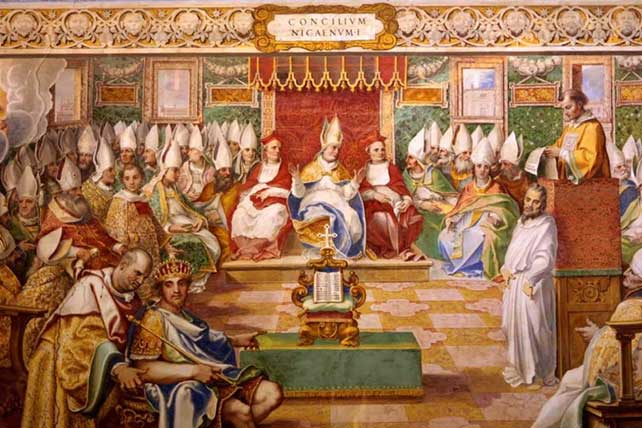Although the pope and patriarch have not yet gathered in Nicaea, the town has seen a steady stream of Christian leaders making a pilgrimage. For example, Elpidophoros’ group visited with a joint delegation of Finnish Christian leaders, including both its Orthodox archbishop and Catholic bishop of Helsinki.
“In Finland, you have to be ecumenical in any church,” said the Rev. Heikki Huttunen, a Finnish Orthodox priest on the trip who previously served as secretary general of the Ecumenical Council of Finland.
Huttunen said another noteworthy aspect of the Council of Nicaea was that it occurred only 12 years after Christianity was legalized in the Roman Empire.
“The church who got together in Nicaea was a church which came out of persecutions, so it was like the opposite of the established churches of today,” Huttunen said. “It was persecuted. It was its people. Its leaders were mutilated, and many had died. Those who met in Nicaea were survivors of the persecutions, so they came out of a position of no power at all.”
He said Christians today can take note from that, as the religion should give a voice to those who don’t have one, specifically the poor, animals and the natural environment. Huttunen stressed his desire for the church to address social and ecological issues, and he noted how early church fathers were able to draw on Hellenistic philosophy and their wider world outside of the Bible to address theological concerns.
“That was courageous and that was creative and that was new,” he said.
Like Huttunen, the Rev. Bartholomew Mercado, a professor at the Holy Cross Greek Orthodox School of Theology in Brookline, Massachusetts, said that being in historic Nicaea, he felt the weight of its history on his shoulders.
“You have this sense that we’re part of this living tradition,” he said on the shores of Lake İznik, where the ruins of the Nicaea basilica remain beneath the waves. “We’re a part of this continued faith. And to be successors of this, there’s a lot that we have to consider because it’s not just about continuing in faith tradition — it’s also about continuing in that mentality. And that mentality was never rigid. We have to think about where we stand in such a privileged position, and how we have a responsibility in that position to look after those who are not in such a privileged position — other people who are being persecuted and not only our own because to look after one’s own is way too easy.”
This article originally appeared here.

